
Mount Pelion: The Enchanted Mountain of Greece
Mount Pelion, located in Thessaly, Greece, is a stunning blend of myth and natural beauty. This mountain is famed for its dense forests, picturesque villages, and crystal-clear waters. According to Greek mythology, it was the home of the Centaurs, making it a place steeped in ancient lore. Visitors to Mount Pelion can explore charming villages like Portaria, Makrinitsa, and Tsagarada, each offering unique architecture, cobblestone streets, and warm hospitality. The region is also rich with hiking trails that lead through lush forests and past scenic viewpoints. In winter, Mount Pelion transforms into a snowy wonderland, perfect for skiing and other winter sports at the Agriolefkes ski resort. During summer, the beaches at the foot of the mountain, such as Mylopotamos and Fakistra, offer a perfect escape with their turquoise waters and golden sands. Whether you're an adventurer, a history buff, or a relaxation seeker, Mount Pelion has something special to offer.
Local tips in Mount Pelion
- Visit the villages: Each village in Mount Pelion has its own charm and unique features. Do not miss Portaria, Makrinitsa, and Tsagarada.
- Best times to visit: Spring and autumn are ideal for hiking, while winter is great for skiing. Summer is perfect for beach activities.
- Local cuisine: Try traditional dishes like 'spetsofai' (sausage and peppers) and 'galaktoboureko' (custard-filled pastry).
- Transportation: Renting a car is recommended to explore the mountain and its villages at your own pace.
- Hiking trails: Don't miss the Centaurs' Path in Portaria and the trail from Tsagarada to the stunning Fakistra beach.
Mount Pelion: The Enchanted Mountain of Greece
Mount Pelion, located in Thessaly, Greece, is a stunning blend of myth and natural beauty. This mountain is famed for its dense forests, picturesque villages, and crystal-clear waters. According to Greek mythology, it was the home of the Centaurs, making it a place steeped in ancient lore. Visitors to Mount Pelion can explore charming villages like Portaria, Makrinitsa, and Tsagarada, each offering unique architecture, cobblestone streets, and warm hospitality. The region is also rich with hiking trails that lead through lush forests and past scenic viewpoints. In winter, Mount Pelion transforms into a snowy wonderland, perfect for skiing and other winter sports at the Agriolefkes ski resort. During summer, the beaches at the foot of the mountain, such as Mylopotamos and Fakistra, offer a perfect escape with their turquoise waters and golden sands. Whether you're an adventurer, a history buff, or a relaxation seeker, Mount Pelion has something special to offer.
When is the best time to go to Mount Pelion?
Iconic landmarks you can’t miss
Centaurs' path
Hike through myth and nature on the Centaurs' Path in Pelion, Greece. Discover lush forests, waterfalls, and ancient legends in this scenic escape.
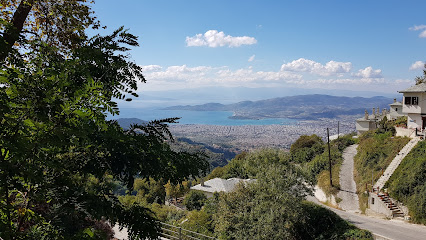
Makrinitsa Central Square
Experience panoramic views and traditional Greek charm at Makrinitsa Central Square, the 'Balcony of Pelion,' a must-see destination near Volos.
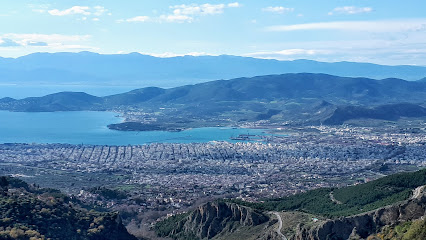
Saint Konstantinos Park
Discover Saint Konstantinos Park in Volos: a historic waterfront park with scenic views, recreational activities, and cultural landmarks.
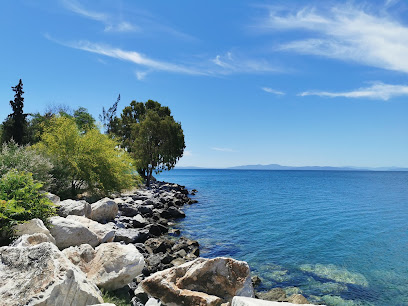
Chorefto Beach
Discover Chorefto Beach: a stunning blend of golden sands, turquoise waters, and rich history on the Pelion Peninsula.
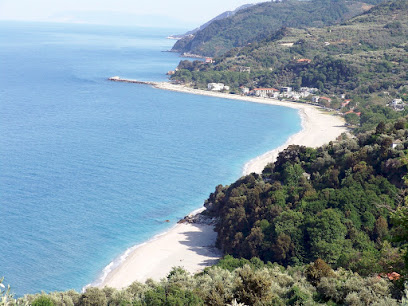
Agii Saranta Beach
Discover Agii Saranta Beach: a picturesque Greek paradise with golden sands, turquoise waters, and tranquil scenery near Zagora, Pelion.
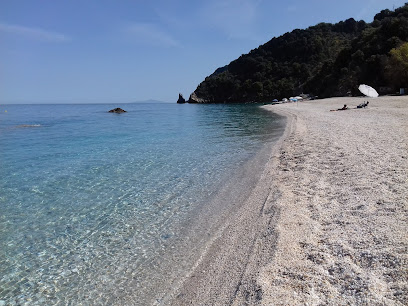
Agia Kyriaki
Discover the authentic charm of Agia Kyriaki, a picturesque harbor village on the Pelion peninsula with rich maritime history and tranquil island vibes.

Pelion
Discover Pelion, Greece: Where mythology meets breathtaking landscapes, offering year-round adventures in a land of ancient legends and natural beauty.
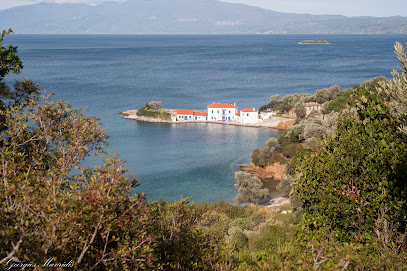
Pelion Ski Centre
Experience the thrill of skiing with breathtaking views at Pelion Ski Centre, one of Greece's oldest and most scenic winter destinations.
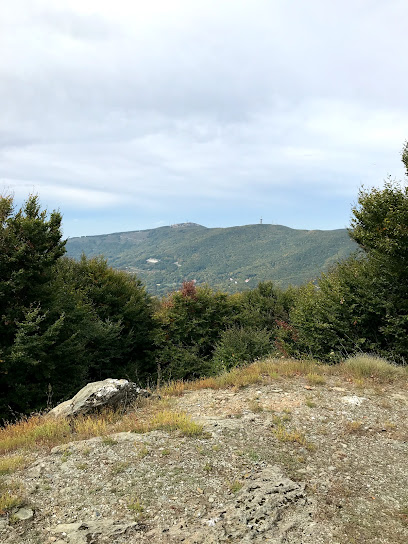
Σιδηροδρομικός Σταθμός Μηλεών, Τρενάκι, Πήλιο
Step back in time at Milies Train Station, the gateway to Pelion's scenic wonders and cultural treasures via the historic Pelion Train.
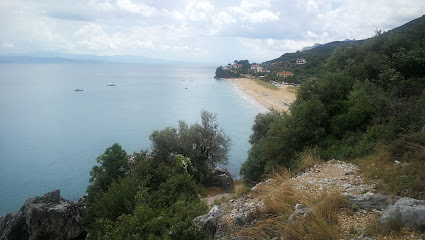
Athanasakio Archaeological Museum of Volos
Explore ancient Thessaly's treasures at the Athanasakio Archaeological Museum in Volos, from Neolithic settlements to the Roman era.
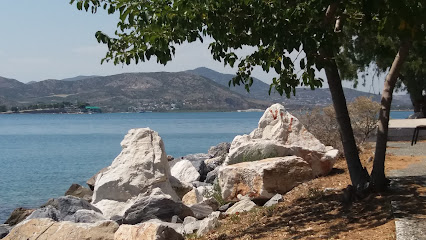
Argalasti
Explore Argalasti, South Pelion's capital: history, architecture, and stunning beaches await in this charming Greek village.
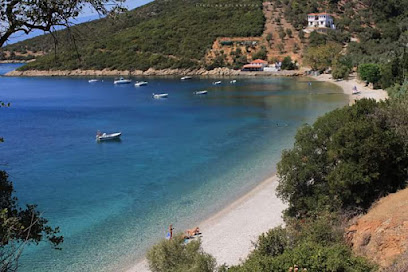
Organic Farm Koumoutsi
Discover the flavors of Pelion at Organic Farm Koumoutsi: fresh produce, local delicacies, and a sustainable farming experience.
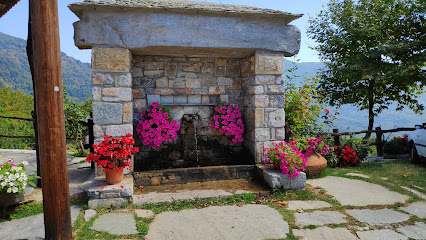
The Train of Pilio (Ano Lekhonia - Milies)
Ride the historic Train of Pelion through mythic landscapes. A unique narrow-gauge railway experience from Ano Lechonia to Milies!
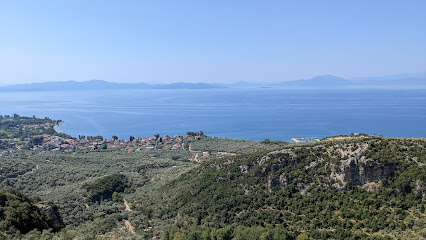
Bridge de Chirico
Discover the scenic Bridge de Chirico in Milies, Greece: a unique railway bridge and hiking paradise blending nature and history.
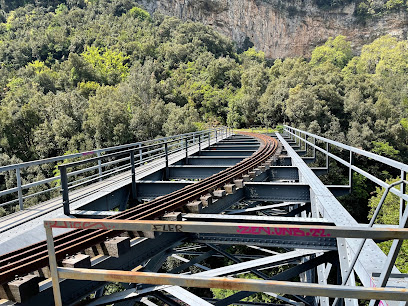
Stream at Poros
Discover the serene beauty of Stream at Poros in Zagora, Greece – a perfect escape for nature lovers and those seeking tranquility.
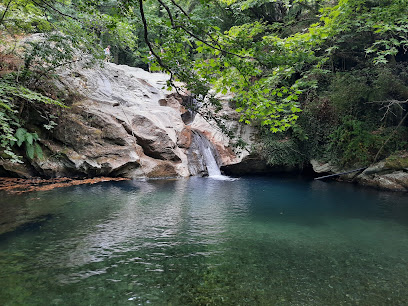
Unmissable attractions to see
Centaurs' path
Explore the mythical beauty of Centaurs' Path in Volos, Greece, where stunning scenery and rich legends await every traveler.
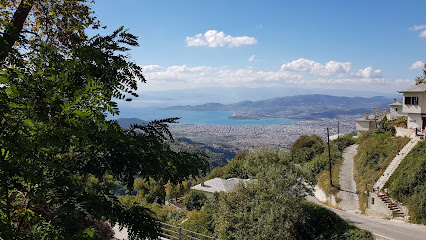
Manolas
Discover the authentic flavors of the Mediterranean at Manolas, Ag. Kiriaki's premier seafood restaurant, offering fresh dishes in a charming setting.
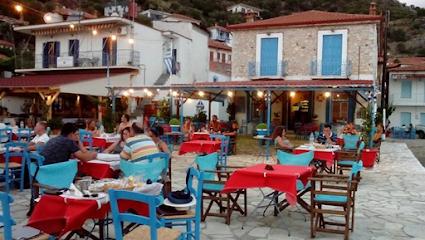
Pelion Ski Centre
Discover the exhilarating slopes and breathtaking views of Pelion Ski Centre, a premier ski resort in the heart of Zagora-Mouresi, Greece.
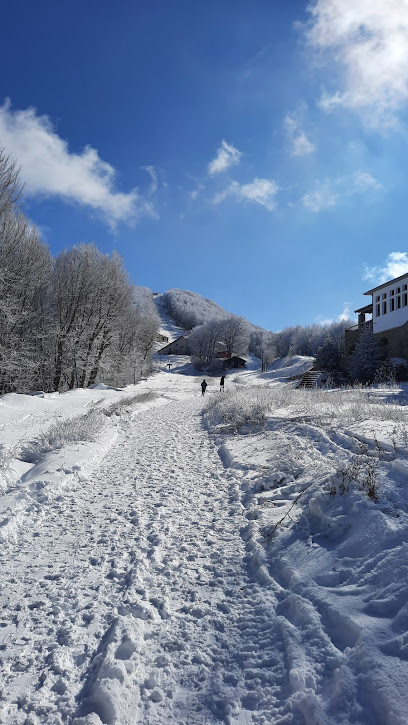
Katarráktes Kissou
Experience the breathtaking beauty of Katarráktes Kissou, a serene waterfall destination in the heart of Kissos, Greece, perfect for nature lovers.
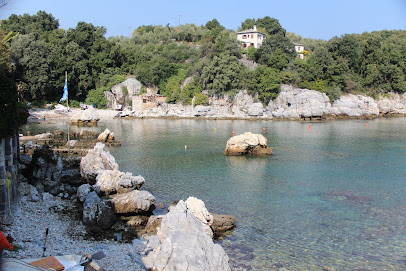
Home of Alexandros Papadiamantis
Explore the heritage of Alexandros Papadiamantis at his home museum in Skiathos, a journey through Greek literature and culture.
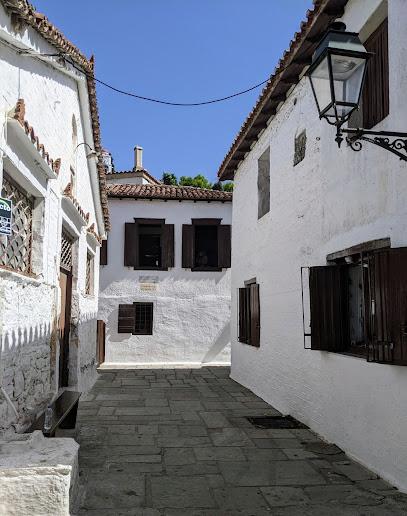
The Train of Pilio (Ano Lekhonia - Milies)
Embark on a scenic journey through the Pelion region aboard the historic Train of Pilio, where breathtaking landscapes and rich history await.
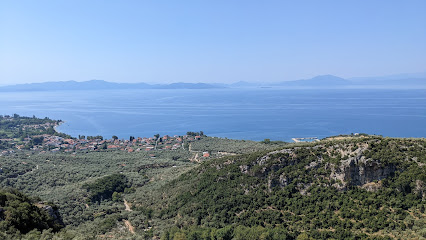
Limnionas Beach
Experience the serene charm of Limnionas Beach in Greece, where crystal-clear waters and stunning landscapes create the perfect getaway.
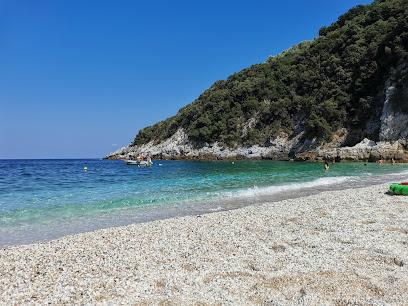
Χάνια Πηλίου δάσος
Discover the breathtaking trails of Χάνια Πηλίου, a paradise for hikers and nature lovers in Pelion, Greece.
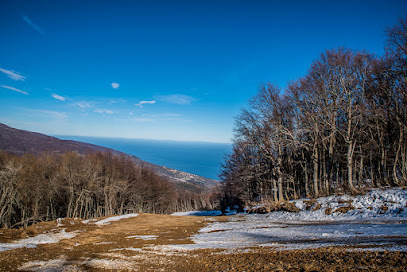
Γέφυρα - Γαλανόρεμα Γαλανόπετρα
Explore the breathtaking Gefyra - Galanopetra in Pelion, Greece, where stunning vistas, rich history, and serene nature await every traveler.
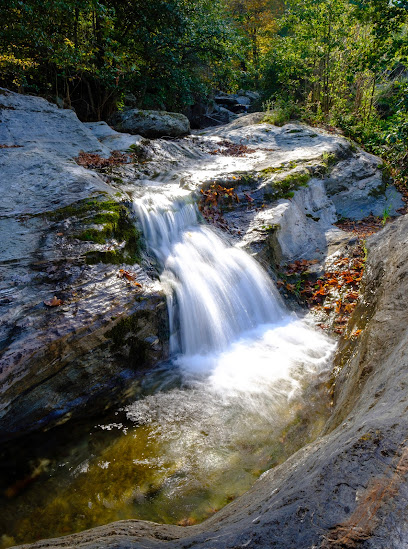
Λόφος Γορίτσας
Discover the stunning views and rich heritage of Λόφος Γορίτσας in Portaria, Greece—a serene escape into nature and history.
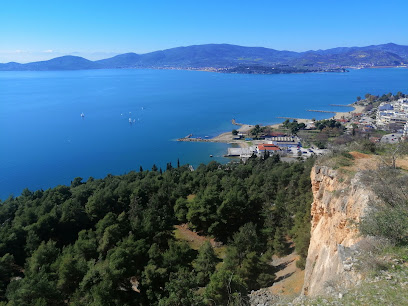
Καταρράκτης Αγίου Ονουφρίου
Explore the stunning beaches and rich cultural heritage of Agios Onoufrios, a hidden gem in Greece perfect for relaxation and adventure.
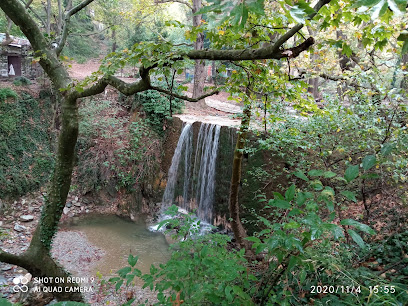
Clock Tower
Discover the iconic Clock Tower of Skiathos, a historic landmark offering stunning views and a glimpse into the island's rich cultural heritage.

Hellenomouseion of Zagora - Rigas Pheraios' School
Explore the Hellenomouseion of Zagora, a historical landmark that unveils the rich educational heritage of ancient Greece in the heart of the Pelion region.
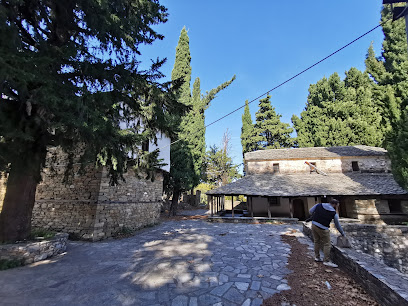
Spring Of Manas
Discover the tranquil beauty of the Spring of Manas in Portaria, Greece—an idyllic natural attraction perfect for relaxation and exploration.
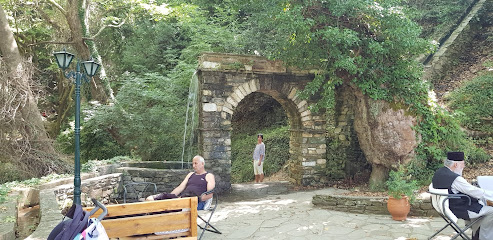
The Little Train of Pelion
Explore the stunning landscapes of Pelion aboard the Little Train, a historic journey through nature's beauty and cultural heritage in Greece.
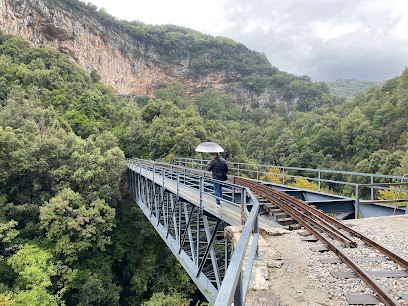
Essential places to dine
cardamo OINOMAGEIREIO
Experience authentic Greek cuisine at Cardamo Oinomageireio in Makrinitsa - where tradition meets breathtaking views.
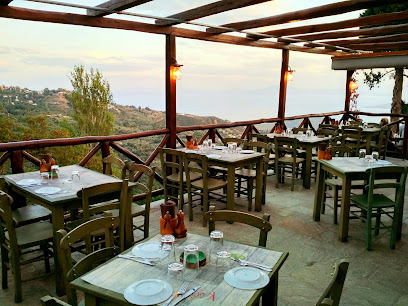
KRITSA Restaurant
Experience authentic Greek cuisine in Portaria at KRITSA Restaurant—where every dish tells a story.
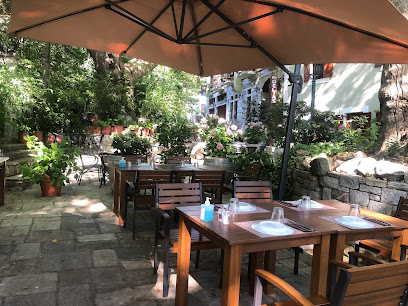
Synantisi
Discover Synantisi in Kissos for an authentic Greek dining experience filled with traditional flavors and warm hospitality.
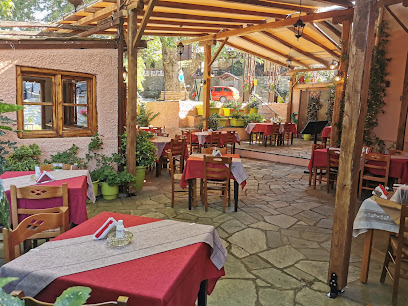
Meintani (Niki's Taverna)
Experience authentic Greek cuisine at Meintani (Niki's Taverna) in Zagora – where tradition meets taste in every delicious dish.
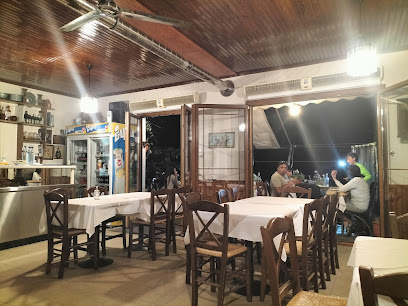
the Salkimi
Experience authentic Greek cuisine in Pilio at The Salkimi – where tradition meets taste in every dish.
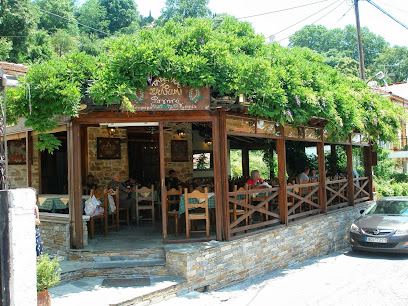
Tavern Pelion Geuseis Portaria
Discover the authentic taste of Greece at Tavern Pelion Geuseis in Portaria – where tradition meets flavor.
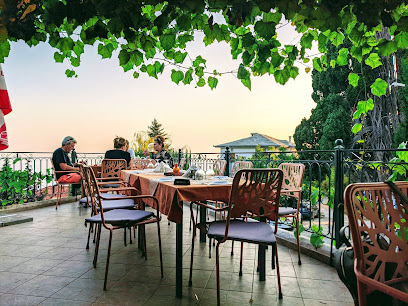
Ταβέρνα Πλυμάρι
Savor authentic Mediterranean cuisine at Ταβέρνα Πλυμάρι, where fresh ingredients meet stunning views in Analipsi.
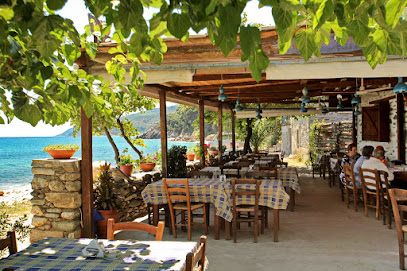
Loukoulos
Experience the best of Greek cuisine at Loukoulos in Chania – where flavor meets tradition in every dish.
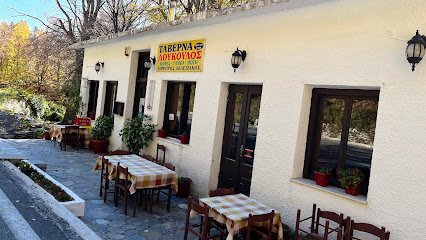
ΤΑΒΕΡΝΑ ΟΡΤΑΝΣΙΕΣ
Experience authentic Greek cuisine at ΤΑΒΕΡΝΑ ΟΡΤΑΝΣΙΕΣ in Katochori—where tradition meets flavor in every dish.
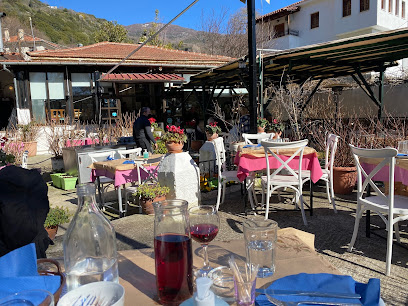
Agora 1955
Savor authentic Greek cuisine at Agora 1955 in Portaria, where tradition meets innovation in a charming setting.
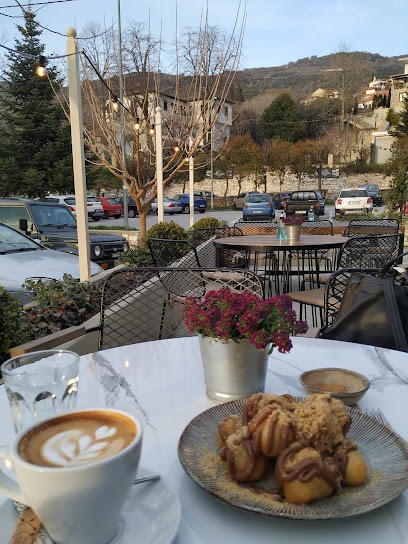
To Katofli tis Ketis
Experience authentic Greek cuisine at To Katofli tis Ketis in Katochori – where tradition meets taste amidst stunning views.
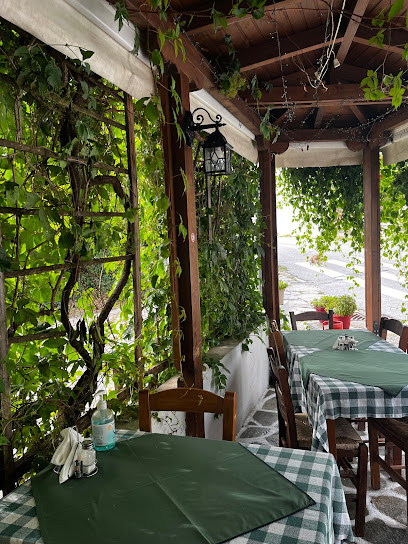
Πέτρος ο Σώγαμπρος , Petros o Sogabros
Savor authentic Greek cuisine at Petros o Sogabros in Chorefto – where every meal tells a story of tradition and flavor.
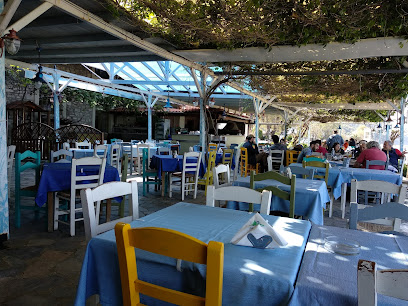
To Kima • Seaside Family Restaurant
Discover seaside dining at To Kima - where fresh flavors meet breathtaking views in Chorefto's enchanting atmosphere.
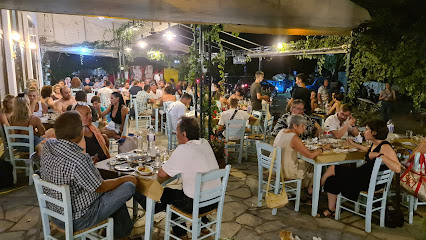
O Christos
Discover the flavors of Greece at O Christos in Agios Ioannis - where fresh seafood meets authentic hospitality.
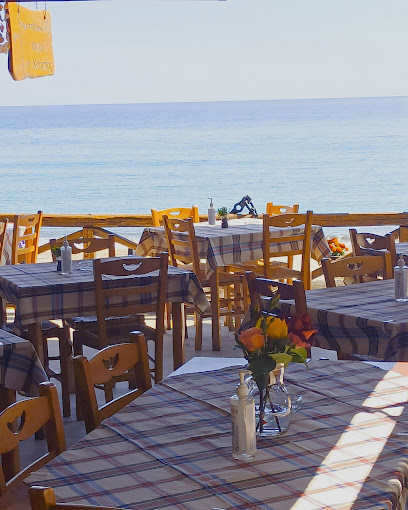
Ταβέρνα Θράκα
Experience authentic Greek flavors at Ταβέρνα Θράκα in Zagora - where tradition meets taste in every bite.
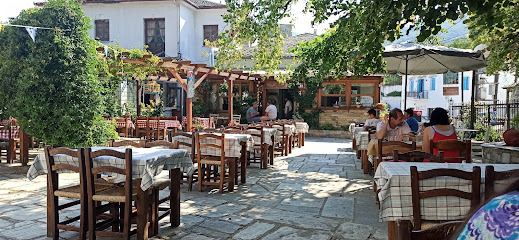
Markets, malls and hidden boutiques
Καλειδοσκόπιο Είδη Λαϊκής Τέχνης ΓΚΑΝΤΙΝΑΣ ΒΑΪΟΣ Μακρινιτσα
Discover the heart of Greek craftsmanship at Καλειδοσκόπιο, an art dealer in Makrinitsa offering unique local artworks and cultural experiences.
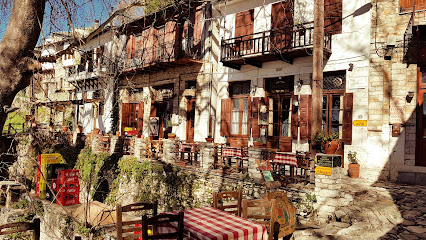
ΤΖΕΡΤΖΕΛΕΣ ΠΑΝΤΟΠΩΛΕΙΟ-ΚΑΦΕΝΕΙΟ
Experience the heart of Greek culture at ΤζΕΡΤΖΕΛΕΣ ΠΑΝΤΟΠΩΛΕΙΟ-ΚΑΦΕΝΕΙΟ, where local flavors and warm hospitality meet.
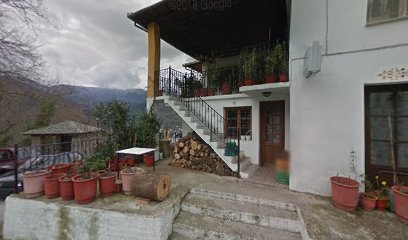
Το χρυσό μήλο
Experience the charm of shopping in Portaria at The Golden Apple, where local crafts meet modern retail in a vibrant setting.
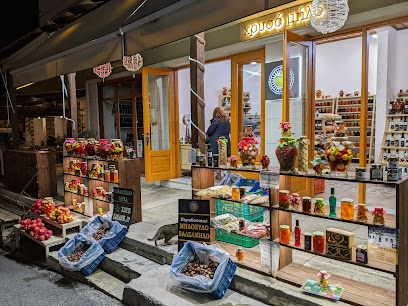
Γη Ανατολής
Explore Γη Ανατολής in Zagora, where local craftsmanship meets charming ambiance for unique gifts and authentic souvenirs.
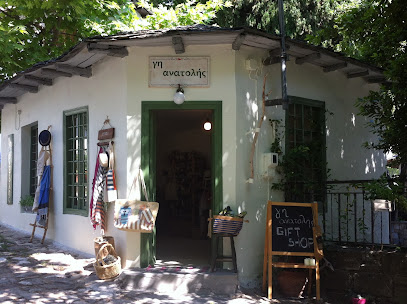
The Shop Of Nature
Discover the essence of Greek nature at The Shop Of Nature in Makrinitsa, offering a delightful selection of organic goods and artisanal crafts.
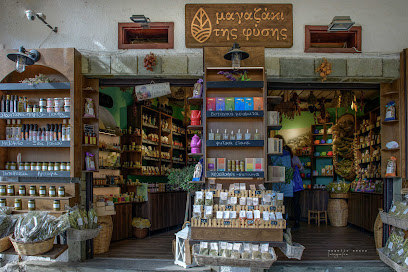
Botanothḗkē
Explore the rich heritage of herbal medicine at Botanothḗkē in Makrinitsa, where nature's remedies meet traditional Greek wisdom.
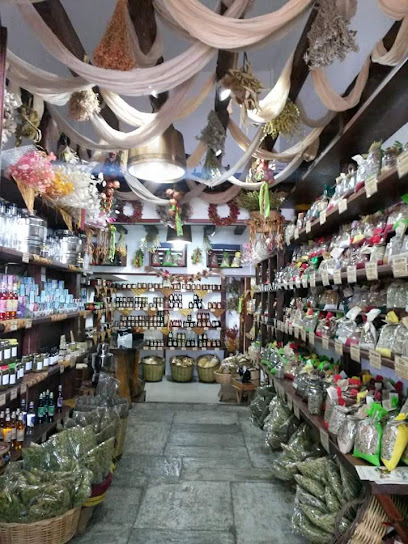
Peritechno
Explore Peritechno in Makrinitsa, a unique novelty store filled with authentic Greek crafts and souvenirs that capture the essence of your journey.
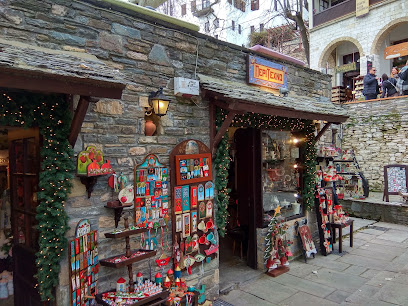
e-katsonis DIY
Discover local crafts and DIY supplies at e-katsonis DIY in Zagora, a vibrant shopping mall reflecting the charm of Greek culture.

purple bike
Explore Purple Bike in Agios Ioannis for unique gifts and local crafts that capture the essence of Greek culture.
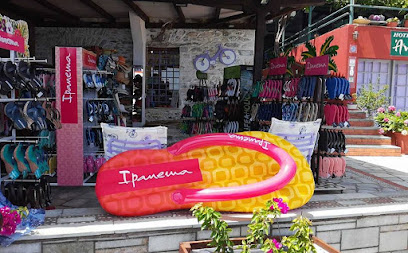
Κατάστημα χαρτικών Pasios
Discover unique stationery and home goods at Κατάστημα χαρτικών Pasios in Volos, a perfect stop for souvenirs and local treasures.
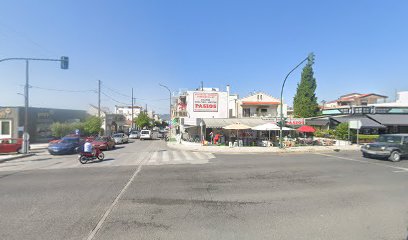
Amadryás
Discover unique, handmade gifts at Amadryás in Tsagkarada, where local craftsmanship meets warm hospitality.
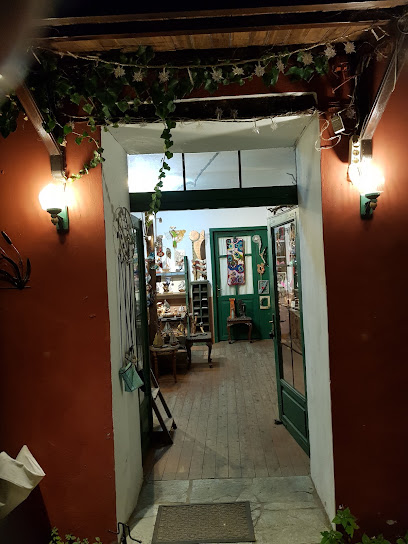
Apéritto
Explore the charming Apéritto gift shop in Portaria, where local handicrafts and unique souvenirs await every visitor.
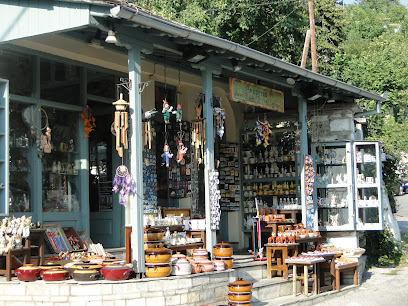
Íris
Explore Íris, a charming gift shop in Portaria, offering unique souvenirs and local crafts that embody the spirit of Greece.
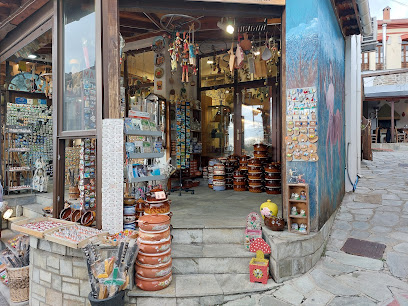
Doralia Αρχιπελαγος
Explore Doralia Αρχιπελαγος in Agios Ioannis for unique Greek gifts, local crafts, and a cultural experience that captures the heart of Greece.
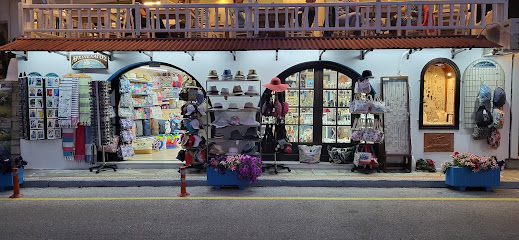
Black Tailor's
Explore Black Tailor's Giftshop in Agios Ioannis for unique souvenirs and delightful local crafts that capture the spirit of Greece.
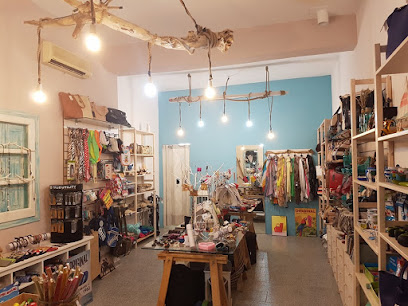
Essential bars & hidden hideouts
Grappa Vino & Aperitivo
Discover Grappa Vino & Aperitivo: Volos' premier wine bar offering exquisite wines, local delicacies, and a warm ambiance perfect for every occasion.
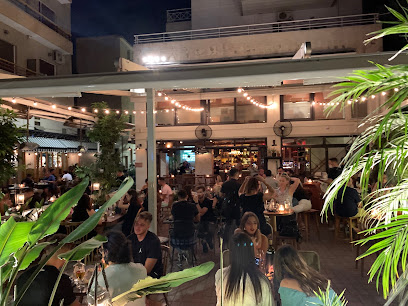
Red Nose Bar
Discover the vibrant Red Nose Bar in Volos, where exceptional cocktails meet delightful brunch in a cozy atmosphere.
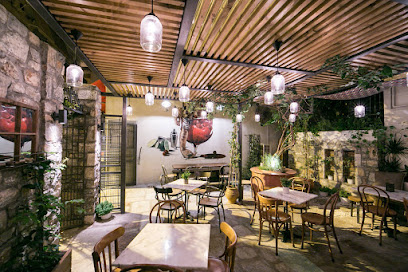
Monk Paradise Beach Bar
Discover the beauty of Zagora at Monk Paradise Beach Bar, where relaxation meets stunning seaside views and refreshing drinks.
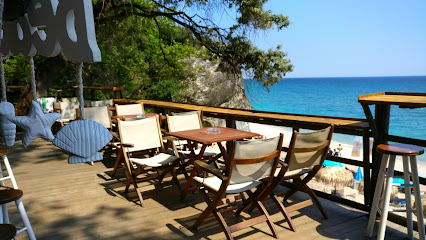
Alter Ego Rock & Blues Bar
Experience the vibrant nightlife of Volos at Alter Ego Rock & Blues Bar, where live music and an electric atmosphere await every visitor.
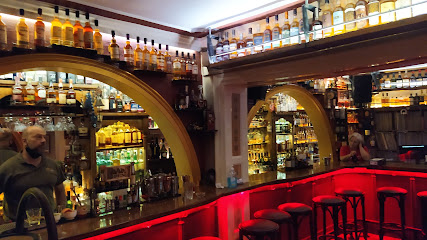
Cafe bar People
Experience the vibrant spirit of Agria at Cafe Bar People, the perfect spot for relaxation and socializing with locals and travelers alike.
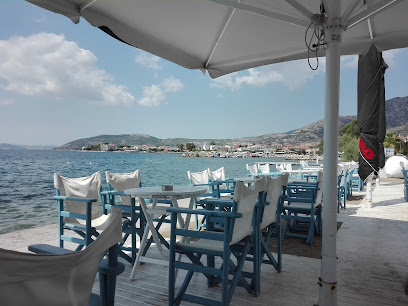
Sarande Beach Bar Restaurant
Experience the charm of Sarande Beach Bar Restaurant, where delicious cuisine meets breathtaking sea views in Agii Saranta.
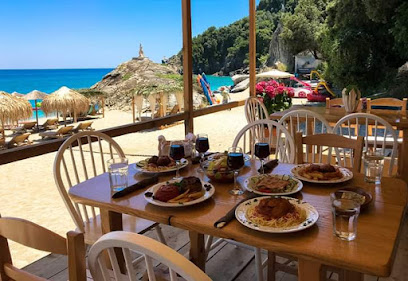
Mountain Top Cafe - Pelion
Discover the enchanting flavors and breathtaking views at Mountain Top Cafe, a must-visit spot in Chania, Greece.
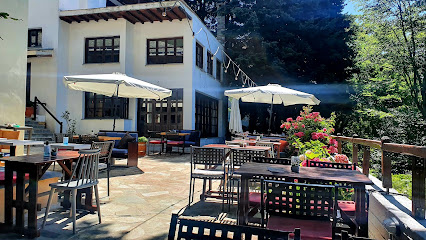
Paralos Bar
Experience the vibrant nightlife at Paralos Bar, where expertly crafted cocktails and a cozy atmosphere create the perfect escape in Agios Ioannis.
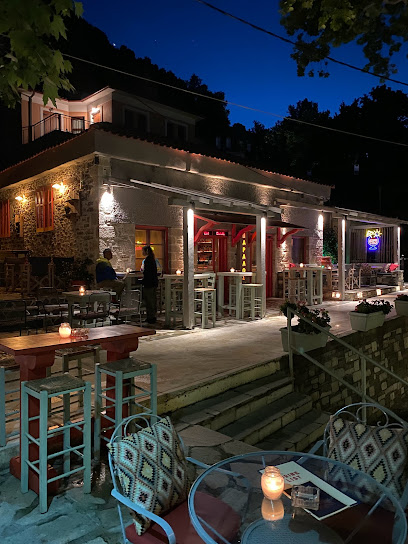
Nagual Beach Bar
Experience the perfect blend of relaxation and vibrant nightlife at Nagual Beach Bar in Kala Nera, Greece.
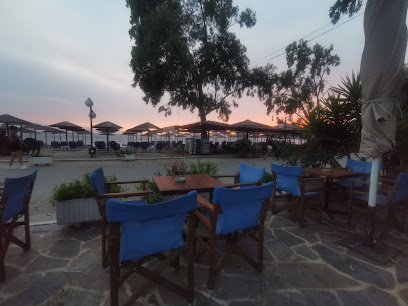
Coco Baroco
Explore the vibrant ambiance and exquisite cocktails at Coco Baroco in Kala Nera, a must-visit destination for every traveler.
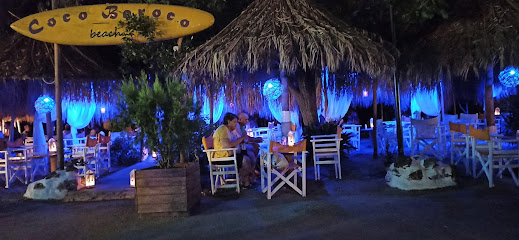
ooh la la breezy bar
Experience the perfect blend of grilled delights and vibrant nightlife at Ooh La La Breezy Bar in Volos.
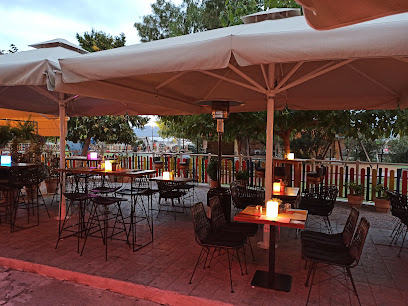
No bar
Discover No Bar in Portaria: A Unique Blend of Crepes, Cocktails, and Nightlife in the Heart of Greece.
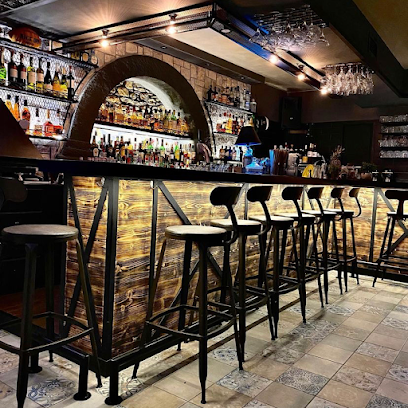
Έλξις Bar
Discover the vibrant Έλξις Bar in Ano Volos, a perfect blend of local culture, lively atmosphere, and delightful drinks for an unforgettable night.
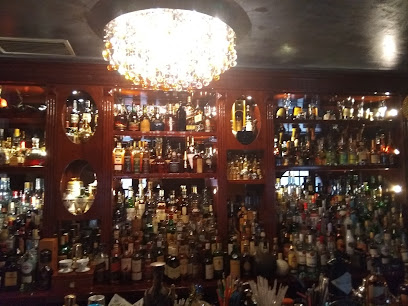
Chronotribeío
Discover the vibrant nightlife of Volos at Chronotribeío, an inexpensive bar with great drinks and a lively atmosphere.
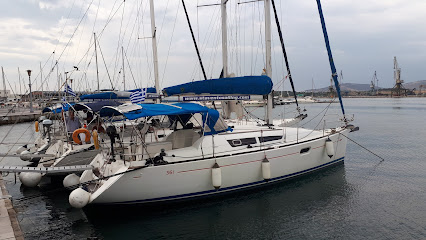
Local Phrases about Mount Pelion
-
- HelloΓεια σας
[Ya sas] - GoodbyeΑντίο
[Adio] - YesΝαι
[Ne] - NoΌχι
[Ohi] - Please/You're welcomeΠαρακαλώ
[Parakalo] - Thank youΕυχαριστώ
[Efharisto] - Excuse me/SorryΣυγγνώμη
[Signomi] - How are you?Πώς είσαι;
[Pos ise;] - Fine. And you?Καλά. Εσύ;
[Kala. Esi;] - Do you speak English?Μιλάτε Αγγλικά;
[Milate Agglika;] - I don't understandΔεν καταλαβαίνω
[Den katalaveno]
- HelloΓεια σας
-
- I'd like to see the menu, pleaseΘα ήθελα να δω το μενού, παρακαλώ
[Tha ithela na do to menou, parakalo] - I don't eat meatΔεν τρώω κρέας
[Den troo kreas] - Cheers!ΥΓΕΙΑ!
[Yia] - I would like to pay, pleaseΘα ήθελα να πληρώσω, παρακαλώ
[Tha ithela na plirosou, parakalo]
- I'd like to see the menu, pleaseΘα ήθελα να δω το μενού, παρακαλώ
-
- Help!Βοήθεια!
[Voithia!] - Go away!Φύγε!
[Fiye!] - Call the Police!Καλέστε την Αστυνομία!
[Kaleste tin Astinomia!] - Call a doctor!Καλέστε έναν γιατρό!
[Kaleste enan yatro!] - I'm lostΈχω χαθεί
[Eho hathi] - I'm illΕίμαι άρρωστος
[Eimai arrostos]
- Help!Βοήθεια!
-
- I'd like to buy...Θα ήθελα να αγοράσω...
[Tha ithela na agoraso...] - I'm just lookingΑπλά κοιτάω
[Apla kitao] - How much is it?Πόσο κοστίζει;
[Poso kostizi;] - That's too expensiveΑυτό είναι πολύ ακριβό
[Afto ine poli akribo] - Can you lower the price?Μπορείτε να κατεβάσετε την τιμή;
[Borite na katevasete tin timi;]
- I'd like to buy...Θα ήθελα να αγοράσω...
-
- What time is it?Τι ώρα είναι;
[Ti ora ine;] - It's one o'clockΕίναι μία ώρα
[Ine mia ora] - Half past (10)Μισή (10)
[Misi (10)] - MorningΠρωί
[Proi] - AfternoonΑπόγευμα
[Apoyevma] - EveningΒράδυ
[Vradi] - YesterdayΧθες
[Hthes] - TodayΣήμερα
[Simera] - TomorrowΑύριο
[Aurio] - 1Ένα
[Ena] - 2Δύο
[Dyo] - 3Τρία
[Tria] - 4Τέσσερα
[Tessera] - 5Πέντε
[Pente] - 6Έξι
[Exi] - 7Επτά
[Epta] - 8Οκτώ
[Okto] - 9Εννέα
[Ennea] - 10Δέκα
[Deka]
- What time is it?Τι ώρα είναι;
-
- Where's a/the...?Πού είναι ένα/το...;
[Pou ine ena/to...;] - What's the address?Ποια είναι η διεύθυνση;
[Pia ine i diefthinsi;] - Can you show me (on the map)?Μπορείτε να μου δείξετε (στο χάρτη);
[Borite na mou dixete (sto charti);] - When's the next (bus)?Πότε είναι το επόμενο (λεωφορείο);
[Pote ine to epomeno (leoforeio);] - A ticket (to ....)Ένα εισιτήριο (για ....)
[Ena isitirio (ya ....)]
- Where's a/the...?Πού είναι ένα/το...;
History of Mount Pelion
-
Mount Pelion, in Greek mythology, is renowned as the home of the Centaurs, a race of half-human, half-horse beings. The most famous among them was Chiron, a wise and kind centaur who was known for his knowledge of medicine and his role as a tutor to many Greek heroes, including Achilles, Asclepius, and Jason. This mythological association bestows Mount Pelion with a rich tapestry of ancient stories and legends.
-
Mount Pelion holds a significant place in the legend of Jason and the Argonauts. According to Greek mythology, Jason assembled his crew of heroes, known as the Argonauts, at the foot of Mount Pelion. They set sail from the nearby port of Iolcos (modern-day Volos) on their epic quest for the Golden Fleece. The mountain's connection to this legendary voyage adds to its historical and cultural significance.
-
Archaeological evidence suggests that Mount Pelion was inhabited by the Pelasgians, an ancient pre-Hellenic people. The Pelasgians left behind traces of their presence in the form of ancient ruins and artifacts. These early inhabitants contributed to the cultural and historical fabric of the region long before the rise of Classical Greece.
-
During the Classical period, Mount Pelion was part of the region of Thessaly and played a significant role in the political and military landscape of ancient Greece. The Thessalian League, a powerful coalition of city-states, often used the strategic location of Mount Pelion to their advantage. The mountain's rugged terrain and dense forests provided natural fortifications and served as a refuge during times of conflict.
-
Mount Pelion experienced a period of tranquility and development during the Byzantine era, when numerous monasteries and churches were established on its slopes. However, the region also witnessed turmoil during the Ottoman period, as it became a center of resistance against Ottoman rule. The traditional villages of Pelion, with their unique architecture and cobblestone streets, reflect the cultural heritage from these historical periods.
-
Mount Pelion played a crucial role during the Greek War of Independence in the early 19th century. The mountain served as a stronghold for Greek revolutionaries fighting against Ottoman rule. Villages such as Makrinitsa and Portaria became important centers of resistance, and many battles were fought on the slopes of Pelion. The spirit of independence and the bravery of the local population are commemorated in the region's monuments and historical sites.
-
Today, Mount Pelion is celebrated not only for its natural beauty but also for its cultural heritage. The mountain is dotted with traditional villages that have preserved their historical architecture and customs. Festivals, local crafts, and culinary traditions continue to thrive, offering visitors a glimpse into the rich cultural tapestry of the region. The enduring legacy of Pelion's history is evident in its vibrant contemporary culture.
Mount Pelion Essentials
-
Mount Pelion is located in the Thessaly region of Greece. The nearest airport is Nea Anchialos National Airport (VOL), approximately 60 kilometers away. From the airport, you can take a taxi or rent a car to reach Mount Pelion. Alternatively, you can fly into Athens International Airport (ATH) or Thessaloniki International Airport (SKG) and take a train or bus to Volos, the main city at the foot of Mount Pelion. From Volos, local buses and taxis are available to reach various villages on the mountain.
-
Transportation within Mount Pelion includes local buses, taxis, and rental cars. Local buses connect the main villages and are a budget-friendly option. Taxis are readily available but can be more expensive. Renting a car offers the most flexibility, allowing you to explore the mountain's scenic routes and hidden gems at your own pace. Be prepared for narrow and winding roads, especially in the higher altitudes.
-
The official currency in Greece is the Euro (EUR). Credit cards are widely accepted in hotels, restaurants, and shops, but it is advisable to carry some cash, especially in smaller villages and remote areas. ATMs are available in larger villages like Portaria, Makrinitsa, and Tsagarada, but it's wise to withdraw sufficient cash in Volos before heading up the mountain.
-
Mount Pelion is generally a safe destination for tourists. However, like any travel destination, it is advisable to take standard precautions. Avoid leaving valuables in your car and be cautious of pickpockets in crowded areas, especially during festivals and peak tourist seasons. There are no specific high-crime areas targeting tourists, but it's always best to stay vigilant and aware of your surroundings.
-
In case of an emergency, dial 112 for immediate assistance. This is the European Union emergency number and connects you to police, fire brigade, and medical services. There are medical facilities and pharmacies in larger villages such as Portaria and Tsagarada. It is recommended to have travel insurance that covers medical emergencies. For minor health issues, local pharmacies can provide over-the-counter medications.
-
Fashion: Do dress modestly, especially when visiting religious sites. Avoid wearing overly revealing clothing. Religion: Do respect local customs and traditions. Always cover your shoulders and knees when entering churches and monasteries. Public Transport: Do be respectful and considerate to fellow passengers. Don't eat or drink on public transport. Greetings: Do greet people with a friendly 'Kalimera' (Good morning) or 'Kalispera' (Good evening). A handshake is also common. Eating & Drinking: Do try local delicacies and accept food offerings graciously. Don't refuse hospitality, as it is considered impolite. Remember to say 'Efharisto' (Thank you).
-
To experience Mount Pelion like a local, visit the traditional markets in villages such as Zagora and Milies, where you can buy fresh produce and handmade goods. Engage with locals, as they are often friendly and eager to share stories about the mountain's history and culture. Don't miss visiting the historic Pelion train, also known as the 'Moutzouris,' which offers a scenic ride through the lush landscape. For a unique experience, hike along the ancient stone paths called 'kalderimia' that connect the villages and enjoy the breathtaking views.
Trending Landmarks in Mount Pelion
-
Centaurs' path
-
Makrinitsa Central Square
-
Saint Konstantinos Park
-
Chorefto Beach
-
Agii Saranta Beach
-
Agia Kyriaki
-
Pelion
-
Pelion Ski Centre
-
Σιδηροδρομικός Σταθμός Μηλεών, Τρενάκι, Πήλιο
-
Athanasakio Archaeological Museum of Volos
-
Argalasti
-
Organic Farm Koumoutsi
-
The Train of Pilio (Ano Lekhonia - Milies)
-
Bridge de Chirico
-
Stream at Poros
Nearby Cities to Mount Pelion
-
Things To Do in Larissa
-
Things To Do in Lamia
-
Things To Do in Katerini
-
Things To Do in Delphi
-
Things To Do in Meteora
-
Things To Do in Thessaloniki
-
Things To Do in Athens
-
Things To Do in Patras
-
Things To Do in Serres
-
Things To Do in Ioannina
-
Things To Do in Kavala
-
Things To Do in Nafplio
-
Things To Do in Olympia
-
Things To Do in Pogradec
-
Things To Do in Gjirokastër












